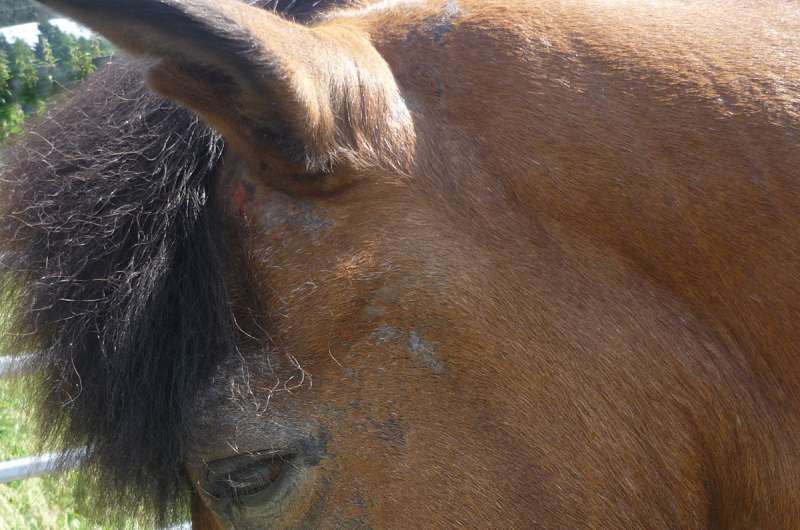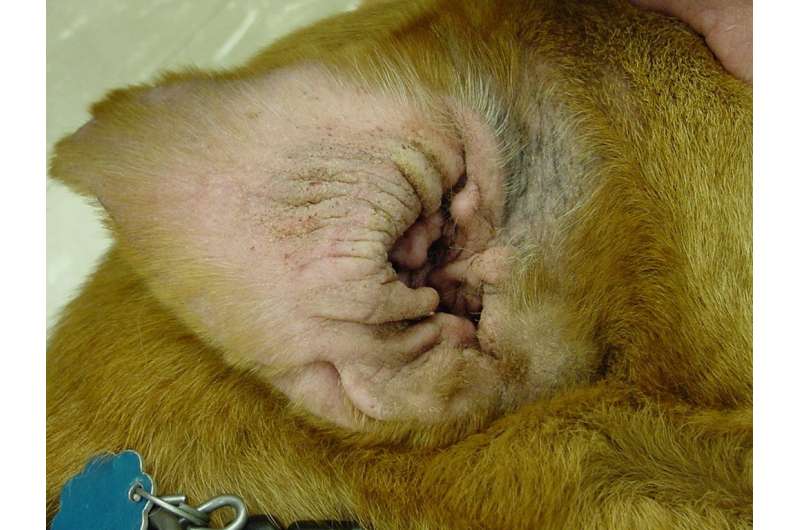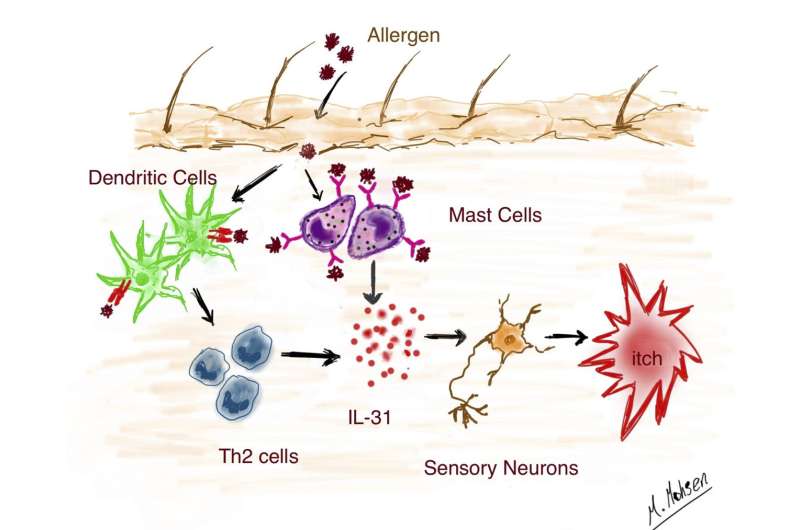Enhanced therapeutic vaccine platform achieves 2 proof-of-concepts in veterinary medical use

Chronic allergic diseases of dogs and horses can now be treated with a new therapeutic vaccine technology based on enhanced virus-like nanoparticle conjugates. It was developed by an international research team led by he University of Bern and in cooperation with the University of Zurich, together with private enterprise companies. The findings obtained in horses and dogs could lead to similar therapeutic vaccines for humans.
Prof. Martin F. Bachmann develops therapeutic vaccines with notable successes that include a vaccine against hypertension, and CAD106, a vaccine against Alzheimer`s disease that is now in registration studies with Novartis. The new enhanced vaccine platform has been engineered to incorporate a universal T-cell epitope for adaptive immune activation, a stimulator of innate immunity, and repetitive antigen presentation in a nanoparticle. Thus, the vaccine platform is optimized for elderly and immunocompromised individuals, and induces strong immunity and a high responder rate. This cutting-edge technology enables the latest advances in biologic medicines to be translated for use in companion animals at affordable prices—an option that will likely change the way we treat our pets.
The clinical potential of these vaccine candidates for use in veterinary medicine is now highlighted by two articles published back-to-back on the 4 April 2018 in the Journal of Allergy and Clinical Immunology (JACI). The scientists developed breakthrough therapies for insect-bite hypersensitivity in horses and atopic dermatitis in dogs by displaying either equine IL-5 or canine IL-31 on the immunologically optimized virus-like particles. Thus, the researchers were able to generate vaccines that induced clinically effective levels of neutralizing target specific anti-cytokine antibodies, which resulted in dramatically improved disease symptoms in immunized animals. This has previously only been achieved by passive immunization with high amounts of monoclonal antibodies.

These vaccines are now being developed as first-in-class breakthrough medicines for treating chronic allergic diseases in the respective target species.
Vaccine against Insect-Bite Hypersensitivity (IBH) in Horses
Allergic skin reactions caused by insect bites are the most common type of allergies in horses. One important form of such a skin allergy is called sweet itch, summer eczema or insect-bite hypersensitivity (IBH), and manifests in weeping and bleeding lesions including crust formation, scales, swelling and lichenification of the skin.

Thirty-four sweet itch-affected Icelandic horses participated in a placebo-controlled, double blinded clinical study performed by Fettelschoss-Gabriel et al., whereof 19 horses received vaccine and 15 horses received placebo. The vaccine consisted of two coupled components. The first is a general immune activation agent based on the enhanced virus-like nanoparticle; the second component is IL-5, a self-molecule. IL-5 is a cytokine and the master regulator of eosinophil development and activation, a major effector cell type in allergy. Immunization with this conjugate vaccine was well tolerated and resulted in IL-5 specific auto-antibodies which neutralized its target. This limited the number of eosinophils localized to the skin and thereby reduced tissue damage. This resulted in strongly reduced skin lesion scores in vaccinated animals compared to the previous season, as well as placebo.
Unlike classical desensitisation, which tries to make the immune system tolerant to allergens, Fettelschoss-Gabriel et al. targeted the key effector cell in insect bite hypersensitivity, the eosinophil. This cell type also plays a key role in allergic human asthma, and moncolonal antibodies against IL-5 have recently become an important new weapon for the treatment of the human disease. The new insights gained in horses may help to develop a similar new medicine in humans.
Vaccine against Atopic Dermatitis in Dogs
Atopic dermatitis (AD) is the most common allergic skin disease in dogs. Extensive itching causes scratching which results in loss of fur and secondary infections of the skin, accelerating the symptoms. AD not only affects the well being of dogs but also impacts the quality of life of their owners. IL-31 is a key cytokine driving itching, and a monoclonal antibody against IL-31 has been licensed for use in dogs for the treatment of AD. The teams of Prof. Martin Bachmann and Prof. Claude Favrot describe the development of a virus-like particle based vaccine against canine IL-31, and demonstrate that immunized dogs mount a robust IgG response that essentially abrogates symptoms of itching in dust mite-sensitized and challenged dogs. Hence, Bachmann et al. present a breakthrough therapy of vaccination against IL-31, which is not only a promising mode to treat AD in dogs but may also facilitate development of a similar vaccine in humans.
More information: Fettelschoss-Gabriel et al.: Treating insect-bite hypersensitivity in horses with active vaccination against IL-5, Journal of Allergy and Clinical Immunology, 04 April 2018 doi.org/10.1016/j.jaci.2018.01.041
Bachmann et al.: Vaccination against IL-31 for the treatment of atopic dermatitis in dogs, 04 April 2018, doi.org/10.1016/j.jaci.2017.12.994
Journal information: Journal of Allergy and Clinical Immunology
Provided by University of Zurich



















